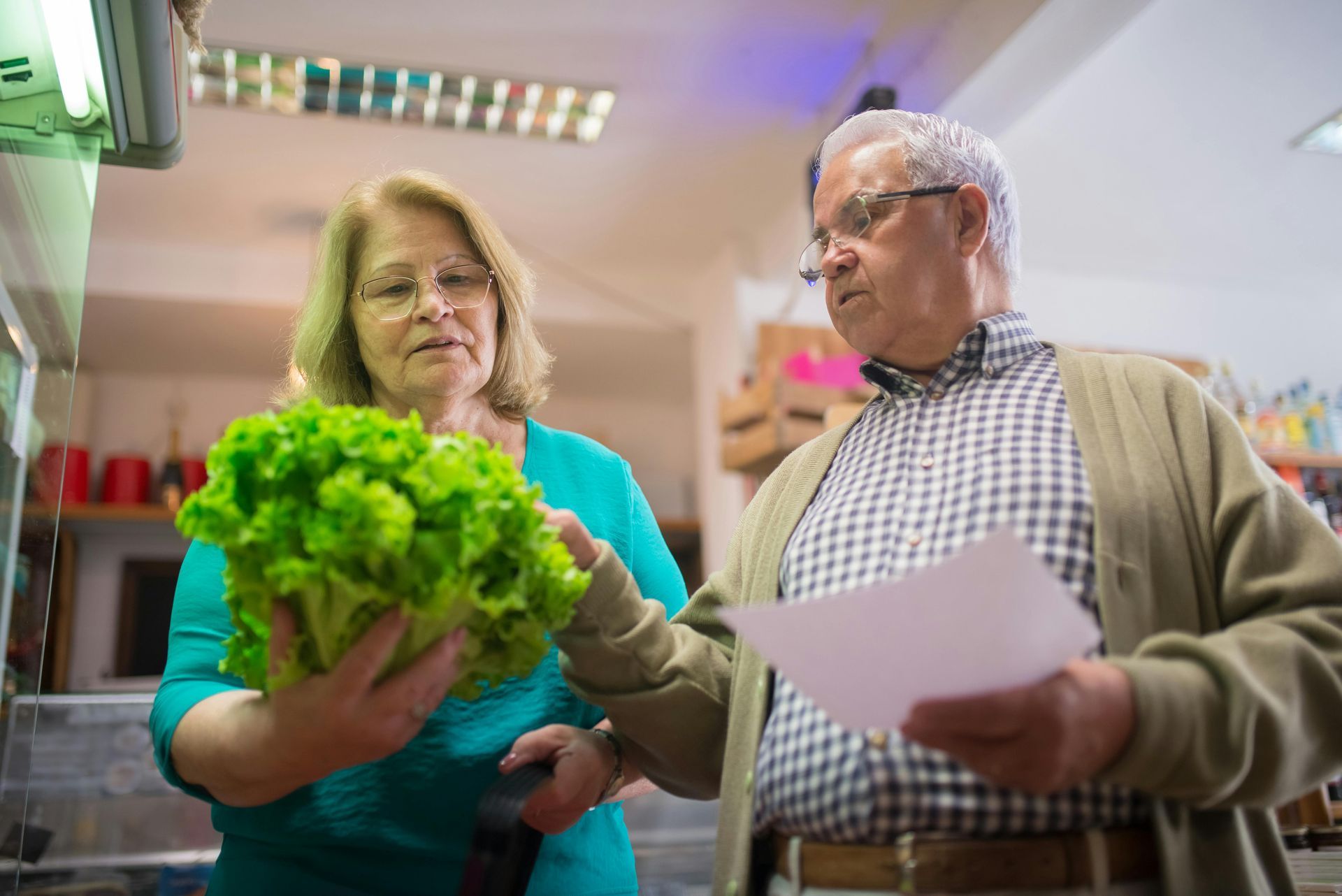8 Questions to Ask When Selecting an Assisted Living Facility
8 Questions to Ask When Selecting an Assisted Living Facility

Many older adults need a little assistance with the tasks of daily living as time marches onward. In these instances, you may be considering moving yourself or a loved one into an assisted living facility. And if and when it comes to that, you’ll no doubt have dozens of questions to answer before taking that big step.
“There’s so much to think about, where do I begin?” asks Dr. Susann Varano, a geriatrician at Maplewood Senior Living, a Westport, Connecticut–based senior living residence company. She says picking the right assisted living facility should mirror how we select a college or career path earlier in life. “It’s similar to when we’re thinking about our careers and picking undergraduate degrees and schools.
We do our homework. We do our due diligence. We see if our interests match what the school has to offer. Then we find out, can we get into the school? Can we afford it? What’s the cost? The location? What’s the reputation? I don’t know why we don’t do that for assisted living.”
Here are questions you should ask to help select the right assisted living facility, broken down into eight overarching areas that raise additional questions at each turn:
- What are my needs?
- How much will it cost?
- Where is the facility located?
- What activities and amenities are available?
- How is health care delivered?
- How open is the community to questions from would-be residents and family?
- What other individual preferences and concerns do I have?
- What differentiates this facility from all the others?
1. Ascertaining Your Needs
Early on in the process, you should think carefully about what you’re going to need now and in the future. Keeping the number of moves you have to make later in life to a minimum can help preserve a higher quality of life and reduce disruption, which may be particularly important if you or your loved one is dealing with cognitive issues such as dementia or Alzheimer’s disease.
“I always tell my patients, first things first, what are your needs? Why are you thinking about going to assisted living?” Varano says. Figuring this out can help you prioritize your list of needs and wants and match those items with a community better equipped to fulfill them. Do you need round-the-clock care? Then an assisted living facility probably isn’t the right fit and it might be more appropriate to be looking for a nursing home. “Once you have clearly identified what your needs are, then look at assisted living facilities to see if they can satisfy
those needs. Do they have the tools and the physical structure to fulfill whatever that need is?” Varano says.
Here, a simple chart may help you organize your thoughts and prevent you from being swayed by a persuasive salesperson or a particularly attractive building. “It sounds elemental, but the visualization is so critical,” Varano says. She recommends setting up the chart with “the list of facilities that can fulfill your needs on the left side, and then along the top, what are your criteria that you feel are a value for you.” This exercise can keep you from getting “distracted by the pretty penny or by the nice chandelier. You want to stay focused and stay in your lane. If you have a beautiful chart, then when you come home you can look at it objectively. I think this has to be a mostly objective decision, though it is partially emotionally-driven.”
2. Financing Assisted Living
Unfortunately, getting the help you need later in life is not free, and in some cases, can be rather expensive. Figuring out how to finance your assisted living stay is a complex process that will likely take years of planning and saving. Knowing as much as you can about what to expect financially ahead of time can help you avoid nasty surprises later.
Questions to ask about financing assisted living facilities include:
- Do fees increase annually, and if so how much?
- What’s the highest monthly fee that I could ever have?
- What’s included in the fee?
- What other a la carte fees are not part of the monthly fee that I need to put into my budget?
- How much different will fees be if I move from one area of the facility to another, i.e. from independent living to memory care?
- Does the facility permit outside agencies to provide a duty aide or other on-site caregiver, and if so, what’s the financial impact of that arrangement?
Varano says it’s also important to ask the hard question: “What happens if I run out of money?” Does that mean you’ll be forced to relocate, and if so, how much time will you have and where will you go?
Similarly, if you have a medical emergency that requires hospitalization for a prolonged period of time, how long will you be able to keep your apartment before the facility wants to turn it over to a new resident? And will you be charged for that apartment while you’re in the hospital? “If they will hold your apartment for you, how much do you have to pay? Is it the full monthly fee? Is it prorated? Are you paying for the room but not paying for the care because you’re not receiving it? Those are very fine details that should be evaluated before versus after,” Varano says.
Ask if you can see the contract. Many assisted living facilities will gladly share this information. If a facility is cagey about it or doesn’t let you review the contract, that could be a warning flag that something isn’t right.
Mary Sue Patchett, executive vice president of Brookdale Senior Living, a senior living company with communities across the country, says you should also ask about whether the facility you’re considering has “up-front fees to move in. Some communities or companies have security deposits on their apartments. Others have a move-in or admission fee or a one-time or upfront fee.” You should also ask if these fees are refundable if you decide not to stay in the facility. “There’s a lot of various different approaches to upfront fees” and how they’re handled, she says. Get the facts before you sign on the dotted line.
3. Location and Convenience
Dr. Tanya Gure, section chief of geriatrics and associate clinical professor in internal medicine at the Ohio State University Wexner Medical Center, says you should think carefully about where the assisted living facility is located both for proximity to family caregivers and for maintaining a connection with the wider community. “I try to encourage families to think about location and how to maintain continuity with the community you’re in or finding a closer connection” with a social network. “It’s so common in our society for older adults, for baby boomers, to be living separate from their children in a different state or region. Often, it becomes important to think about whether the
location benefits them in the long term. It might be the assisted living move is also the beginning of the discussion about dependency over the lifespan to avoid too many moves and disruptions.”
In any case, she says it’s important to begin the search and start having these discussions before a crisis sets in and to think about how life will continue to change for your loved one as he or she ages. “It’s good to take a longer view on what really is the best set-up and logistics for living in proximity to family.”
4. Activities, Amenities and Meals
One way that assisted living facilities differentiate themselves is through the activities and amenities they offer. Varano says just seeing a schedule isn’t enough and there are plenty of other questions you can ask about specific activities and how they’re offered.
“Some facilities have a lower activities budget than ideal to keep costs down so the residents do a lot more (organizing of activities) than other facilities, which in some cases are good and in some are bad. It’s nice to have it, but it shouldn’t replace what the facility should offer.
Because what happens if that resident leaves or passes or their condition starts to deteriorate?” she says.
Finding out what the food is like and how mealtimes work is also an important aspect of determining whether an assisted living facility is the right fit. Patchett says you should ask not only “how many meals a day do I get, but do I have choices on the menu? Do I always have to go to a dining room? Is there a café or bistro on site?” And most importantly: “How does the food taste? Most communities would offer for you to have lunch or dinner on site” to try it out, and you should do so before moving in.
She says food is such an important part of life, and with many older adults needing special diets, it’s critical to find out whether the facility you’re considering can handle tastes, preferences and medically-necessary dietary needs. “If someone is diabetic or if someone is struggling with swallowing,” can those needs be accommodated? Food is also a major source of enjoyment for many people, and it’s one element of life people with failing health still may have some control over, so it’s an important consideration.
5. Health Care Considerations
Varano says when you’ve narrowed your list of possible facilities down to two or three, it’s time to start asking the “nitty-gritty medical questions.” Some facilities have an “integrated care model where there’s a physician, a social worker and a nurse who are consulted for the most complex patients to prevent hospitalization and if they did get hospitalized, to prevent rehospitalization. That might be a value to some families or patients,” so consider whether that’s something that would be helpful for your situation. A visit with a geriatrician might help you ascertain what those needs are and how they’ll best be met.
Gure says the allure of a pretty facility can sometimes mask that the health care services offered just aren’t right for a particular senior. “It’s nice to have all the bells and whistles, but it’s also important to consider the quality of the services that are offered here.” Other questions you might want to ask include:
- What kinds of patients are currently living in that facility?
- How many residents live there?
- What is the proximity to good health care services that are unaffiliated with the facility but just by proximity might be able to provide additional care as needed?
- Can you continue with your primary care physician or other specialists in the community you might already have a relationship with?
If you need subacute care, meaning care that’s more intensive than what is typically provided, but aren’t sick enough for the hospital, what kinds of services are available within the continuum of care of that assisted living facility?
“It’s common for companies to have assisted living and independent living and other levels of care that kind of graduate up to nursing home level care” on the same campus, Gure says. “Some also offer subacute services, and being able to utilize those services, and being able to be discharged back into independent living is a nice way to keep continuity with patients and provide the needs that their residents may have when they have medical issues or acute health crises. It also gives the staff at these facilities more awareness of who their residents are and what their needs are.” Such arrangements aren’t available everywhere, though, so you need to ask how it works at any facility you’re considering.
Varano also says you should ask how long the average stay is at a facility, as this question can give you some insight into the level of care that’s available and the type of residents who may be living there. “If they say the average expectancy is three years and it’s not due to medical, then you’re going to want to ask, ‘What need did they have that you couldn’t handle here?’ If you have a disease state that they can’t handle, that might not be the right place for you or you might look for a different assisted living community that has a stronger medical model.”
Other questions include:
- How are medications dispensed and managed for adults who need assistance with that?
- Can my loved one’s condition be appropriately managed at this facility?
- How is this condition expected to evolve, and can this facility manage those anticipated changes?
- What palliative, end-of-life or hospice care options are available?
- Does the facility offer physical, occupational or speech therapy? Who provides that? What’s their success rate, and are they dementia trained?
- Is there nursing care available 24/7? If so, is it provided by a registered nurse or a license practical nurse? Is this care available only during the day? What happens during the night? What is the facility’s frequency tolerance of calling 911 or going to the ER? How much can be handled in-house?
6. Touring and Visiting
In addition to taking a formal tour and having an opportunity to sit down with a representative of the facility to ask all the questions you have, Varano says you should also see the facility when they aren’t expecting you. “I always recommend going in unannounced and just showing up. You want to see it real time. You don’t want them prettying up the place for you and having everyone on their best behavior because they know a tour is coming in. You want to show up at nighttime and on the weekends. Show up during meal time. You want to see if it’s organized, if it’s chaotic.”
7. Other Concerns and Preferences
Varano says it’s important to ask early on about simple logistical questions such as whether you can bring your own furniture with you. “If you love Fluffy, your cat, and you don’t even think about it because Fluffy is part of you, you still have to ask, ‘Am I allowed to have a pet?’” Patchett adds that some facilities may have special requirements if you do bring a pet, such as size restrictions on dogs. “If you have a dog, you may have to live on the first floor to have easy access outside.”
You should also ask about other prohibitions that may be in place in that community, such as smoking and drinking. “Am I allowed to have people sleep over? Don’t take for granted that you can do whatever you want because it may or may not be possible,” Varano says.
8. Choosing the Right Community
Lastly, Varano says you should ask what makes one community different from the others you might be considering. “Ask, ‘what makes you stand out from the rest?’ For example, they might have a 24-7 butler and chauffeur service so you don’t have to wait for the van. To some people that’s extraordinarily important. To others they have no interest in it.” Some communities tout their fall prevention programs. Others use technology and telehealth innovations as a selling point. Still others pride themselves on their cuisine or golf courses. No matter what it is that makes a facility different from the one down the road, the bottom line question is: Does this place fit my needs and preferences, and do I feel comfortable here?
SOURCE: US HEALTH NEWS









